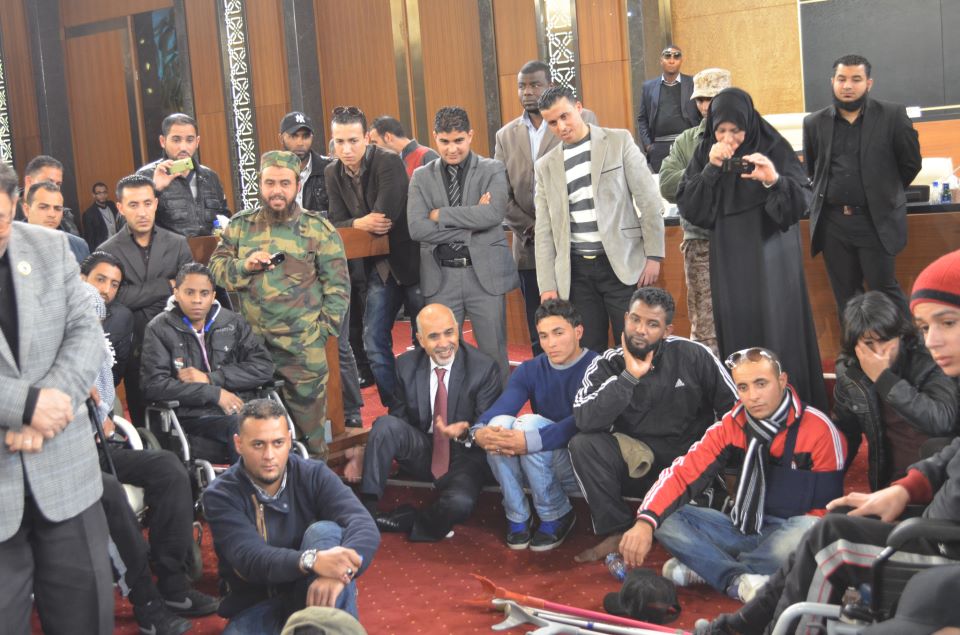By Michel Cousins.

Tripoli, 3 February 2013:
A group of war-wounded revolutionaries and their supporters forced their way into the General National Congress . . .[restrict]building late this morning, Sunday, demanding the authorities pay their medical bills abroad. They claimed they had been thrown out of hospitals and hotels in a number of countries because of non-payment of bills.
Congress President Mohamed Magharief met with the protestors, who staged a sit-in, saying that they would not leave the building until their demands had been met.
Most later left, although this evening a few were said to still be on the premises.
This is not the first time that Congress has been stormed. Just over a week ago, dozens of former revolutionaries forced their way into the building demanding that the Chief of Staff, General Yousef Mangoush, be replaced. Again they were met by Magarief.
In October, a Congressional session was disrupted when revolutionaries broke into the building claiming that they were underrepresented in the Zeidan cabinet which had just been unveiled.
According to Benghazi Congress member, Mohamed Amari Zayed, there was what he called an “unfortunate” incident in today’s event when during an altercation, one of the intruders threatened some members of Congress with a gun.
However, Ziyad was supportive of the wounded revolutionaries calling them “heroes”. Other members too said that they held the government “fully responsible” for delays in providing the necessary treatment for them and that they had to be treated with dignity.
Medical treatment for Libyan revolutionaries abroad has been a fraught issue for more than a year after it turned out that the programme was being massively milked both by many Libyans and a number of healthcare providers abroad. Together it is estimated that corruption and mismanagement of the programme has cost the Libyan state billions of dollars. As a result, it was slashed. However, that has hit genuine wounded fighters requiring treatment outside the country.
Last month, Prime Minister Ali Zeidan announced that the programme would restart, but subject to strict spending controls.
[/restrict]








